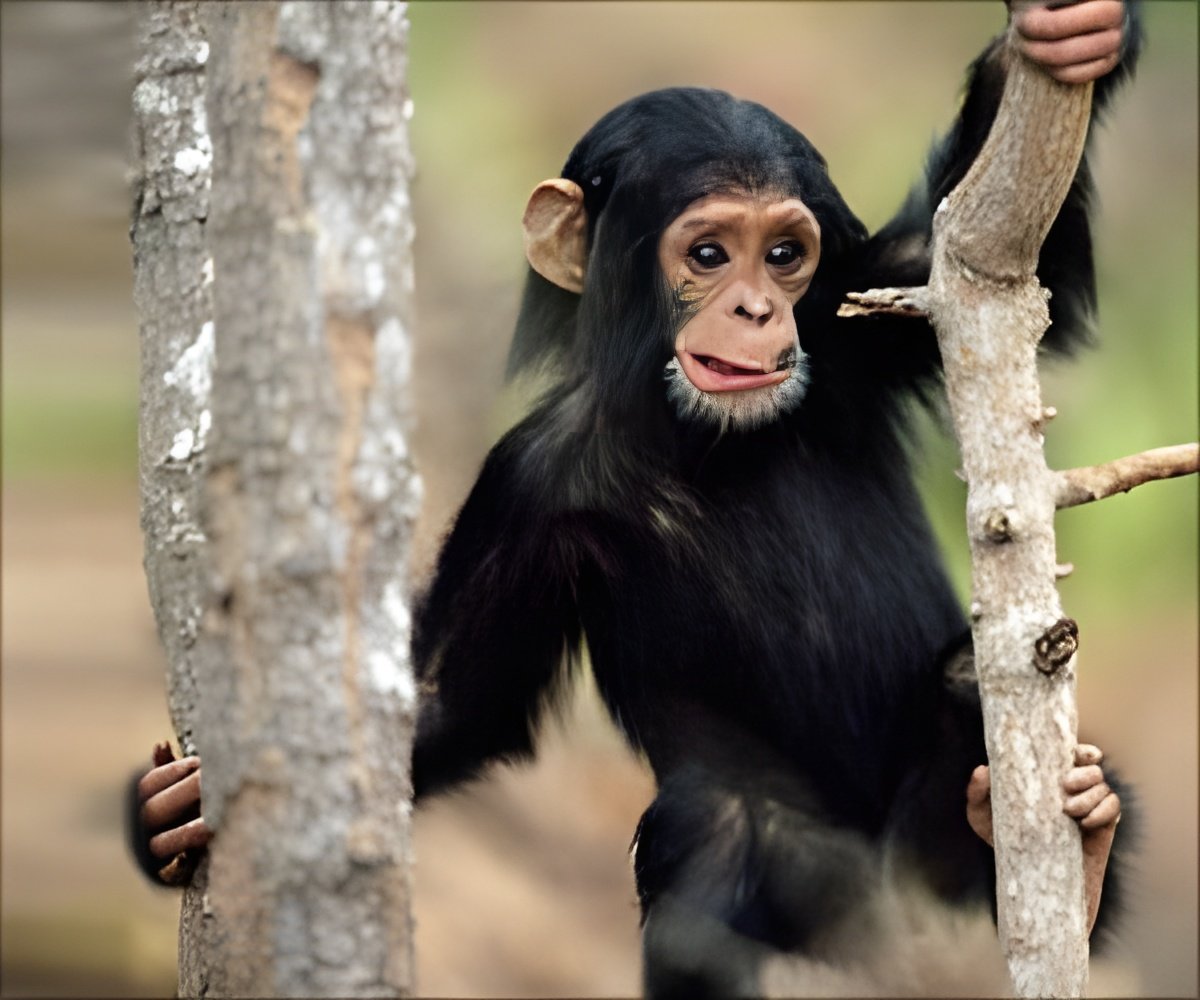Chimpanzees are sensitive to social influences but they maintain their own strategy to solve a problem rather than conforming to what the majority of group members are doing, find researchers.

Edwin van Leeuwen and colleagues from the MPI's for Psycholinguistics and Evolutionary Anthropology conducted a series of experiments in Germany and Zambia to answer this question.
They studied 16 captive chimpanzees at the Wolfgang Kohler Primate Research Center in Germany (Leipzig) and 12 semi-wild chimpanzees at the Chimfunshi Wildlife Orphanage Trust, a sanctuary that houses more than a hundred chimpanzees under nearly natural conditions in the north-western part of Zambia. Chimpanzees were trained on two different vending machines.
A minority of the group was made familiar with one machine and the majority of group members with the other machine. Wooden balls were thrown into their enclosure; the chimpanzees could insert these balls into the machines to receive one peanut for each ball.
Van Leeuwen and his colleagues first aimed to replicate previous research and looked whether the chimpanzees in the minority group would change their behaviour toward using the vending machine that the majority of group members used.
However, neither the German nor the Zambian chimpanzees gave up their strategy to join the majority.
Over time, the majority chimpanzees observed that the minority chimpanzees received more peanuts for the same effort and all but one gradually switched to using this more profitable machine.
Source-ANI
 MEDINDIA
MEDINDIA



 Email
Email




